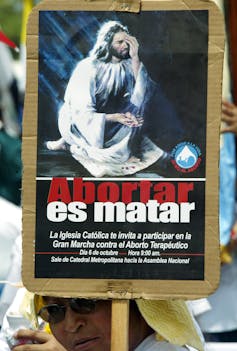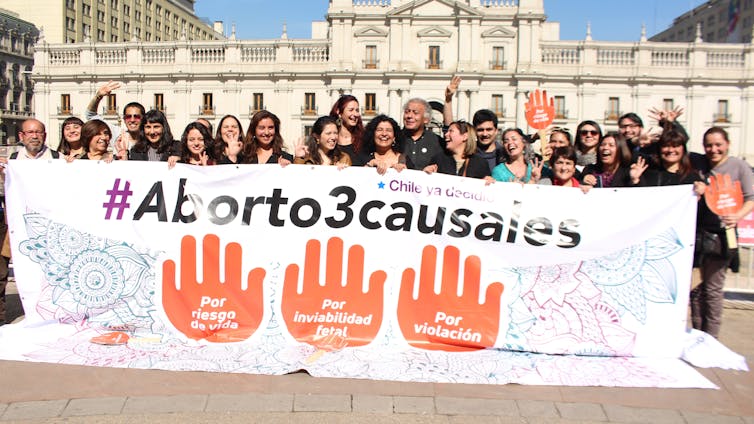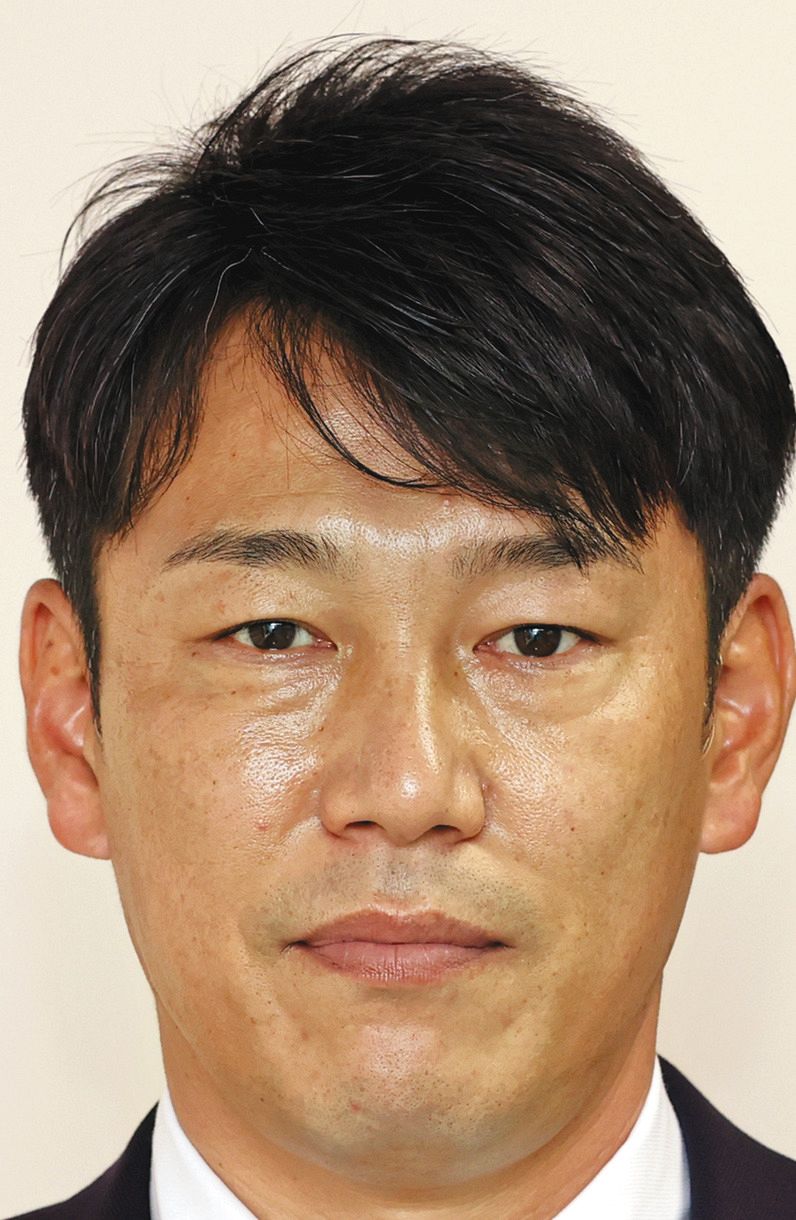Three quarters of all abortions in Latin America are done illegally. Along with Africa and Asia, this region accounts for much of the 17.1 million unsafe abortions performed each year around the world, according to the new report from the journal The Lancetpublished in conjunction with the Guttmacher Institute, an international NGO.
While disturbing, the data is not surprising. Six countries in the region strictly prohibit abortion in any circumstance: Dominican Republic, El Salvador, Haiti, Honduras, Nicaragua and Suriname. This total prohibition, even to save the life of the woman, is still maintained in only two other countries in the world, Malta and the Vatican.
Los studies confirm that restrictive laws in no way prevent or impede that women continue to resort to abortion. And in the vast majority of countries in this region, including Argentina, Bolivia, Colombia, Ecuador and Venezuelaand from August of 2017 Chile, this medical procedure is legal but usually restricted to certain grounds such as the health of the mother or cases of rape.
But not in Central America, a region that has three of the eight countries where abortion is illegal in all circumstances. As a Costa Rican lawyer and feminist, it doesn’t seem like a minor thing to me that the majority of women in neighboring states do not have access to this basic health service.
Central America: deadly setbacks
How did this region come to omit the recognition of women as full persons subject to rights? In my opinion, the relationship between democracy and women’s reproductive rights is evident in the three countries: Honduras, Nicaragua and El Salvador.
In Honduras, as a result of a political shock, not only the prohibition of abortion in all circumstances, even to save the lives of women, it was reaffirmed but also, after coup against President Zelaya in 2009the emergency contraception was totally penalized also.
Despite the tireless efforts of human rights defenders and vehement pronouncements from the United Nations systemits people independent experts and NGOs such as Amnesty International, no concrete progress has been seen with respect to women’s reproductive rights.
This should not be surprising. In Honduras today, the violation of human rights – from the violence and the poverty until the impunity – It is something of every day, for the entire population. the galloping gender inequality it is just another symptom of this sad scenario.
Just to the south, in Nicaragua, the situation is similar. There, the interruption of the pregnancy for health reasons was sustained since 1837 until relatively recently. But under the current government of Commander Daniel Ortegawho has amended the Constitution to be able to be elected a third timeamendments were made to the Penal Code, resulting in a total ban on abortion.
Ortega supported reproductive rights during his first administration in the 1980sbut has since sided with the Catholic Church, which strongly rejects this medical procedure.
A regulation from 2006, still in force, denies women with pregnancies that imply a risk to their lives and/or their health the possibility of survival, since the law did not contemplate any exceptions.
This has had and continues to have lethal repercussions for women in Nicaragua. In 2010, a pregnant woman, whose pseudonym was “Amelia”, was denied treatment for metastatic cancer because, according to the state, the treatment could cause an abortion, this despite the fact that the medical staff had recommended that she start chemotherapy or radiotherapy urgently.

Eventually, the Inter-American Commission on Human Rights granted him precautionary measures to Amelia but the damage was done. She died in 2011.
Although it seems impossible, women may suffer more in El Salvador, country that was under a devastating civil war with crimes that remain in impunity e criminal infiltration of the police.
In 1997, with a change in the Penal Code, all types of abortion were penalized, and currently those spontaneous abortions are still persecuted, under suspicion that they have been induced. In 1999El Salvador constitutionally recognized the embryo as a human person from the moment of conceptionlegal argument used to support the complete criminalization of abortion, ignoring the need when there is a risk to the life of the woman, cases of rape or serious malformations in the fetus.
The social current against abortion it is so virulent in El Salvador today that some women have been accused – even by their own relatives – of aggravated homicide despite the fact that what they had was a spontaneous loss. In 2016, the persecution reached such a point that even Sweden granted political asylum“A woman sentenced to 40 years for losing her pregnancy.
Noticing this kind of social injusticein 2014, the United Nations Committee on the Elimination of all forms of Discrimination against Women asked El Salvador to decriminalize abortion, since the vast majority of women persecuted and sentenced for abortion, are precisely those most vulnerable: young, without formal education, jobless and single.
women’s citizenship
There are cultural, political and economic differences between these three countries, of course, but the relationship between the degradation of the rule of law and the lack of recognition and guarantee of women’s rights is notable. It is so because deny them Women’s ability to decide over their bodies is denied their human rights, since they turn out to be valuable as long as they are perceived as custodians of potential lives, lives that the law recognizes as worthy of being protected.
The Colombian Constitutional Court He said it correctly in 2006, in order to decriminalize abortion, he argued that, “The dignity of a woman excludes that she can be considered as a mere receptacle.”
The history of Chile confirms this reality. in 1931Congress approved the exception of voluntary interruption of pregnancy for therapeutic purposes in cases of danger to the woman or inviability of the fetus, and it was maintained for more than 50 years.
However, it became illegal with the regimen del General Augustin Pinochet in 1973, and in the Chilean Constitution of 1980 it was established that the law protected the life of “the unborn” under the interpretation that the life of the woman was worth much less than that of an embryo.
It was not until this year, August 2017, that it returned to the good sense of protecting the lives and health of women. The recent “re-legalization” of abortion in Chile shows that once women have lost their value before the state, as a person against that of embryos and fetuses, it is very difficult to go back, but it is possible.
The struggle for power in the Central American regimes, where the ban on abortion is still in force, reveals that what is at stake is not only the recognition of women as persons, but also the political system of our society. Well, how to continue calling democracies to states that do not recognize women as people?
Note: This article have been indexed to our site. We do not claim legitimacy, ownership or copyright of any of the content above. To see the article at original source Click Here

.jpg)












